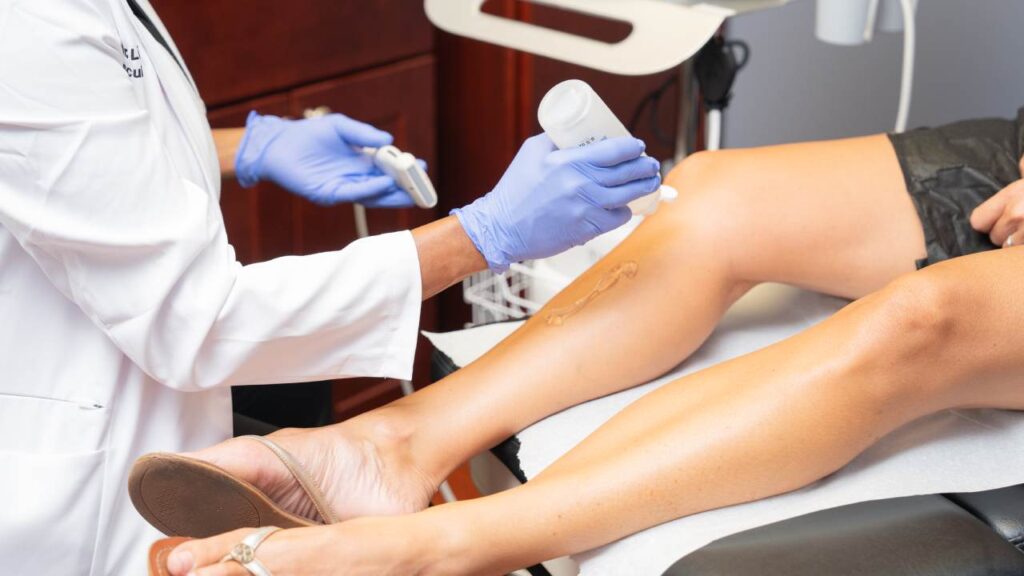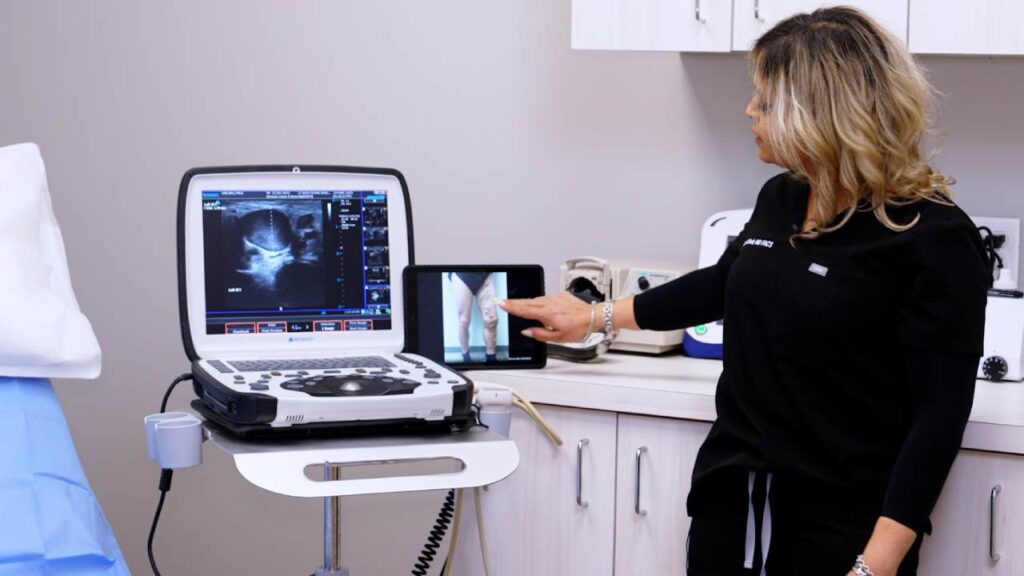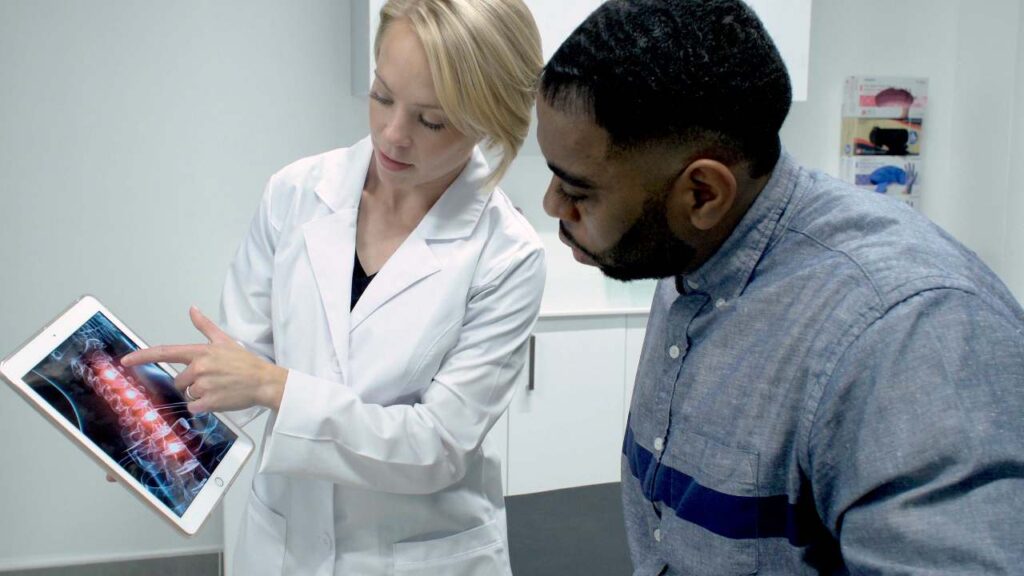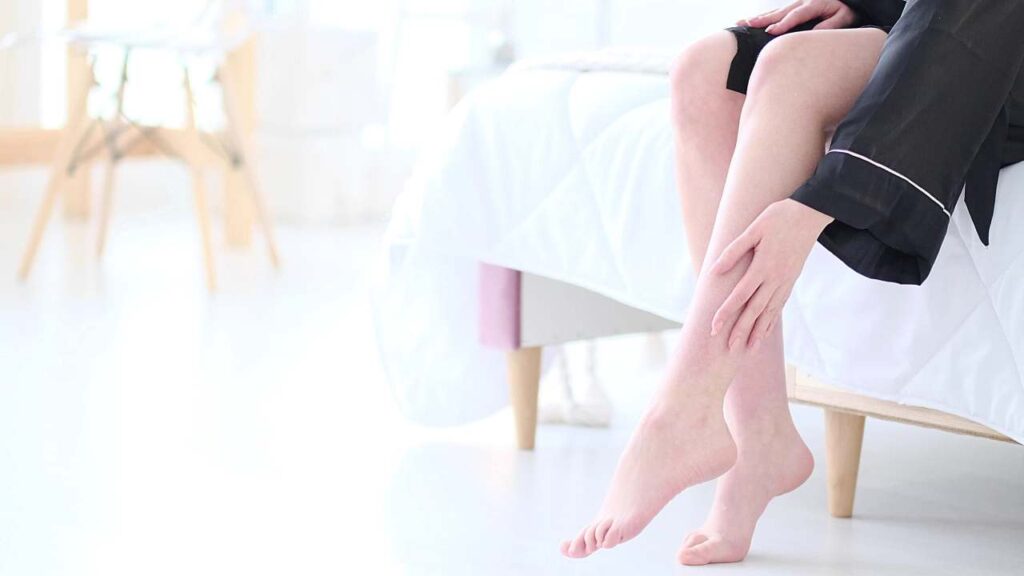Is Vein Ablation Painful?
Are you concerned about your varicose vein treatment procedure? Are you afraid that it will hurt or cause pain? Or are you afraid of the side-effects of the varicose vein treatment?
It’s possible that you’ve been told varicose vein treatments are invasive or that they involve surgery. Long ago, that would have been true.
However, modern medicine has come a long way in the last couple of years. Now, we have a number of non-surgical minimally-invasive procedures that cause minimal pain or discomfort. Most of these treatments are conducted on an outpatient basis so you can even resume all your daily activities immediately after the treatment without experiencing any significant side effects.
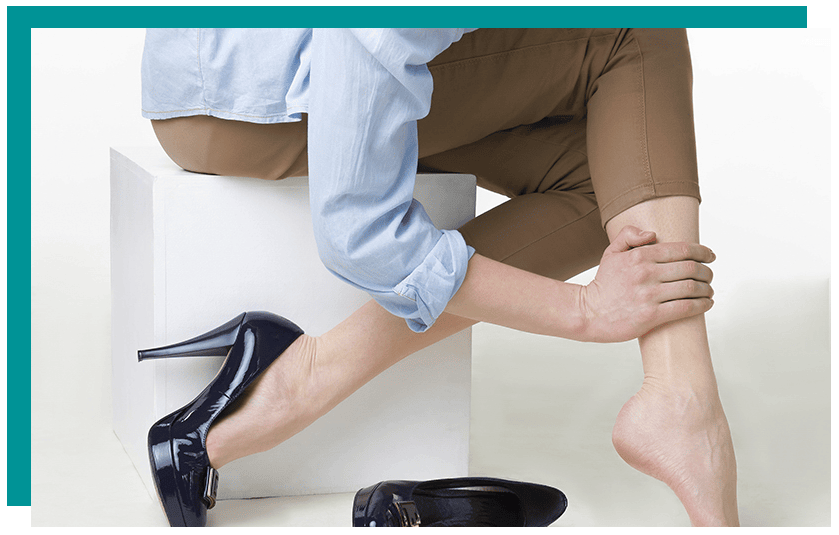
Long story short: “Is vein ablation painful?”
No, vein ablation is not painful. You may experience mild discomfort, but it is not painful.
In this article, we discuss all the details of endovenous laser ablation and radiofrequency ablation so you know exactly what to expect from your vein ablation treatment.
Is Laser Vein Ablation Painful?
Endovenous Laser Ablation (also known as Laser Vein Ablation) is a minimally-invasive non-surgical treatment in which a laser is placed inside the damaged vein under ultrasound guidance. The affected vein is then surrounded by an anesthetic fluid and laser energy is directed into the walls of the veins. This generates an inflammatory reaction and seals the veins closed.
Over time, the vein is absorbed into the body and the accumulated blood reroutes to healthier veins. Blood circulation goes back to normal immediately after the treatment. The treatment causes minimal pain because it is performed under local anesthesia.
After the treatment, you have to wrap your leg in an ace bandage for around 48 hours and wear compression stockings for around 7 days.
Advantages of Laser Vein Ablation
- Causes only mild discomfort and minimal pain because the procedure is performed under local anesthesia.
- Laser vein ablation concludes within an hour.
- Doesn’t cause scarring.
- You can resume most of your activities immediately after the treatment.
Drawbacks of Laser Vein Ablation
- You can get back to work immediately after, but only if it doesn’t require extreme physical exertion. You can only resume heavy exercises about one week after the treatment.
- Even though the pain experienced is minimal, this treatment is still slightly more painful than other treatments for varicose veins.
- You may experience a slight pain in your legs for a few days after the treatment.
- There is an extremely low risk of blood clots and infections. However, this risk is minimized even further if you go to the right vein treatment clinic.
Is Radiofrequency Ablation For Varicose Veins Painful?
Radiofrequency Ablation (RFA) is currently the best minimally-invasive treatment for varicose veins. It is performed via a modern technological device called ClosureFAST.
During this vein ablation procedure, thermal energy is directed into the walls of the affected veins to close them down. Before the treatment, a numbing medicine is injected on the inside of the knee so you don’t feel a thing. The vein doctor then uses ultrasound to guide a catheter into the diseased vein. The numbing solution is also delivered to the walls of the vein and then the catheter generates enough thermal energy to close down the vein completely.
The accumulated blood is rerouted to healthier veins and the closed vein eventually hardens and gets reabsorbed by the body.
Radiofrequency ablation is the best treatment for varicose veins because it is completely painless. The entire procedure concludes in 15 to 45 minutes and you can resume your daily activities immediately after the treatment.
Advantages of Radiofrequency Ablation
- RFA has an incredible 98% success rate.
- You experience no pain and only minimal discomfort.
- You don’t experience any pain after the treatment either.
- The whole procedure concludes within an hour so you don’t have to interrupt your daily routine considerably.
- Blood circulation returns to normal immediately after the treatment.
- You can resume all your daily activities, even those that require some physical exertion.
Drawbacks of Radiofrequency Ablation
- There is a slight possibility of temporary bruising or stiffness.
- Your skin may feel numb for a while after the treatment.
At VIP Medical Group, we study your condition and medical history carefully to make sure that you don’t experience these (or any) side effects after the treatment.
What Are The Best Treatments For Varicose Veins?
The absolute best treatment for varicose veins is radiofrequency ablation because it causes no pain or discomfort and it has an incredible success rate.
Other than radiofrequency ablation, the other best treatments for varicose veins are VenaSeal and Varithena.
VenaSeal
VenaSeal is one of the newest and most effective treatments for varicose veins. A minimally-invasive medical adhesive (vein glue) fuses the walls of the affected veins together, effectively closing them down. This procedure doesn’t even involve any anesthesia and it is still completely painless.
Varithena
Varithena is also referred to as a роlіdосаnоl injectable fоаm. It is basically a special solution of pre-made sclerotherapy foam and it can immediately treat varicose veins.
The only drawback here is that some people may be allergic to the foam solution. That’s why it’s necessary to consult a board-certified highly-qualified vein doctor who takes the time to get to know you, your condition, and your medical history.
Which is The Best Varicose Vein Treatment For Me?
A vein specialist can only determine which is the best varicose vein treatment for you after studying your condition, your medical history, and your family history. Based on all that information, they determine which treatment you would respond to best.
To find out which is the best varicose vein treatment for you, book an appointment with your nearest vein specialist in NY or vein specialist in NJ.

